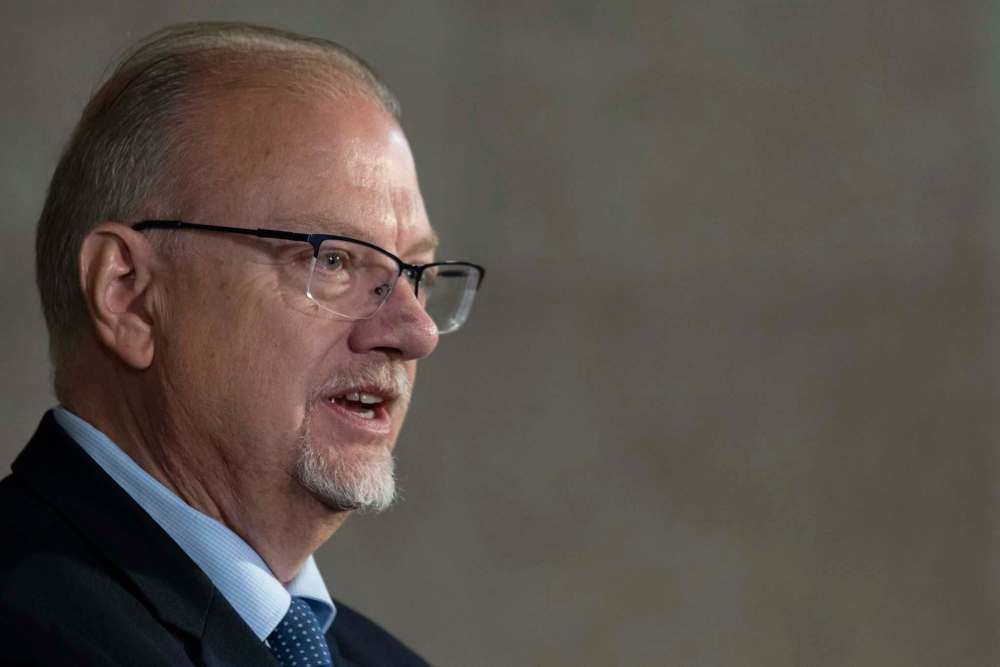Respect for nurses’ efforts long overdue
Read this article for free:
or
Already have an account? Log in here »
To continue reading, please subscribe:
Monthly Digital Subscription
$0 for the first 4 weeks*
- Enjoy unlimited reading on winnipegfreepress.com
- Read the E-Edition, our digital replica newspaper
- Access News Break, our award-winning app
- Play interactive puzzles
*No charge for 4 weeks then price increases to the regular rate of $19.00 plus GST every four weeks. Offer available to new and qualified returning subscribers only. Cancel any time.
Monthly Digital Subscription
$4.75/week*
- Enjoy unlimited reading on winnipegfreepress.com
- Read the E-Edition, our digital replica newspaper
- Access News Break, our award-winning app
- Play interactive puzzles
*Billed as $19 plus GST every four weeks. Cancel any time.
To continue reading, please subscribe:
Add Free Press access to your Brandon Sun subscription for only an additional
$1 for the first 4 weeks*
*Your next subscription payment will increase by $1.00 and you will be charged $16.99 plus GST for four weeks. After four weeks, your payment will increase to $23.99 plus GST every four weeks.
Read unlimited articles for free today:
or
Already have an account? Log in here »
Hey there, time traveller!
This article was published 09/06/2021 (1647 days ago), so information in it may no longer be current.
One might be inclined to think this isn’t the sort of thing anyone needs to be told.
And yet, more than 60 emergency-room physicians last week felt it necessary to send a letter to Premier Brian Pallister and acting Health Minister Kelvin Goertzen, outlining their concerns about the stress and burnout being experienced by front-line nurses during the ongoing COVID-19 pandemic.
“Quite frankly, we can’t provide adequate support without them,” said one of the letter’s signatories, Dr. Noam Katz, who works in St. Boniface Hospital’s emergency department. “They are one of the major pillars of health care.”

Somehow, despite the plainly obvious nature of the statement, the physicians felt compelled to make it. The letter cites “all-time low” morale and staffing levels among emergency-room nurses, references the number of experienced nurses who, fed up with feeling “undervalued, unsupported, abandoned, and frankly disrespected,” are choosing to leave the profession, and questions the province’s decision to exclude ER nurses from an agreement signed last December to offer a pandemic-related pay bump to nurses working in intensive-care wards.
“I don’t think you can say money will solve all problems,” said Dr. Katz, “but I certainly think that they felt slighted by not receiving the recognition of their vital role and the high risk they’ve assumed throughout the course of this pandemic.”
That the letter comes at a time when nurses themselves — who have been without a collective agreement for more than four years — are so exasperated by the level to which relations with the province have sunk that they have initiated a strike vote during the pandemic is a clear indication that something needs to be done to rectify the situation, and the current government has to date shown itself to be unable or unwilling to do it.
Given the way earlier urgent entreaties from concerned doctors have been received during the COVID-19 response, it would be foolhardy to think the provincial government will suddenly heed this latest call. When asked this week about the doctors’ letter, Mr. Pallister said he would leave it to Mr. Goertzen to respond. For his part, the acting health minister acknowledged having received the letter and issued a statement saying he appreciates the physicians’ insights and shares concerns about their nursing colleagues.
So, is that it? And if so, how can that possibly serve as an adequate response to nurses in Manitoba? One is reminded of the tepid statement of appreciation issued by the health minister in May, during National Nursing Week, which also happened to be the week the nurses’ union declined to take the province’s latest offer to its members, calling it “far too disturbing” to even consider.“I don’t think you can say money will solve all problems but I certainly think that they felt slighted by not receiving the recognition of their vital role and the high risk they’ve assumed throughout the course of this pandemic.” — Dr. Noam Katz
After 15 months of a pandemic struggle in which nurses have fought perhaps the toughest and most sustained battle, the Pallister government — which oversees Shared Health Manitoba — can’t see its way clear to offering a gesture of gratitude in the form of a fairly negotiated contract. That seems absurd, and leaves one wondering if the premier’s well-documented disdain for organized labour and the collective bargaining process runs so deep that he simply cannot, as a matter of perverse personal principle, look beyond ideology in pursuit of an equitable solution that allows nurses to feel valued.
A Leger poll released this week showed zero per cent of Manitobans are “very satisfied” with the government’s pandemic response. Surely, the state of relations between the province and its nurses must rank among the reasons for that uniquely abysmal number.








